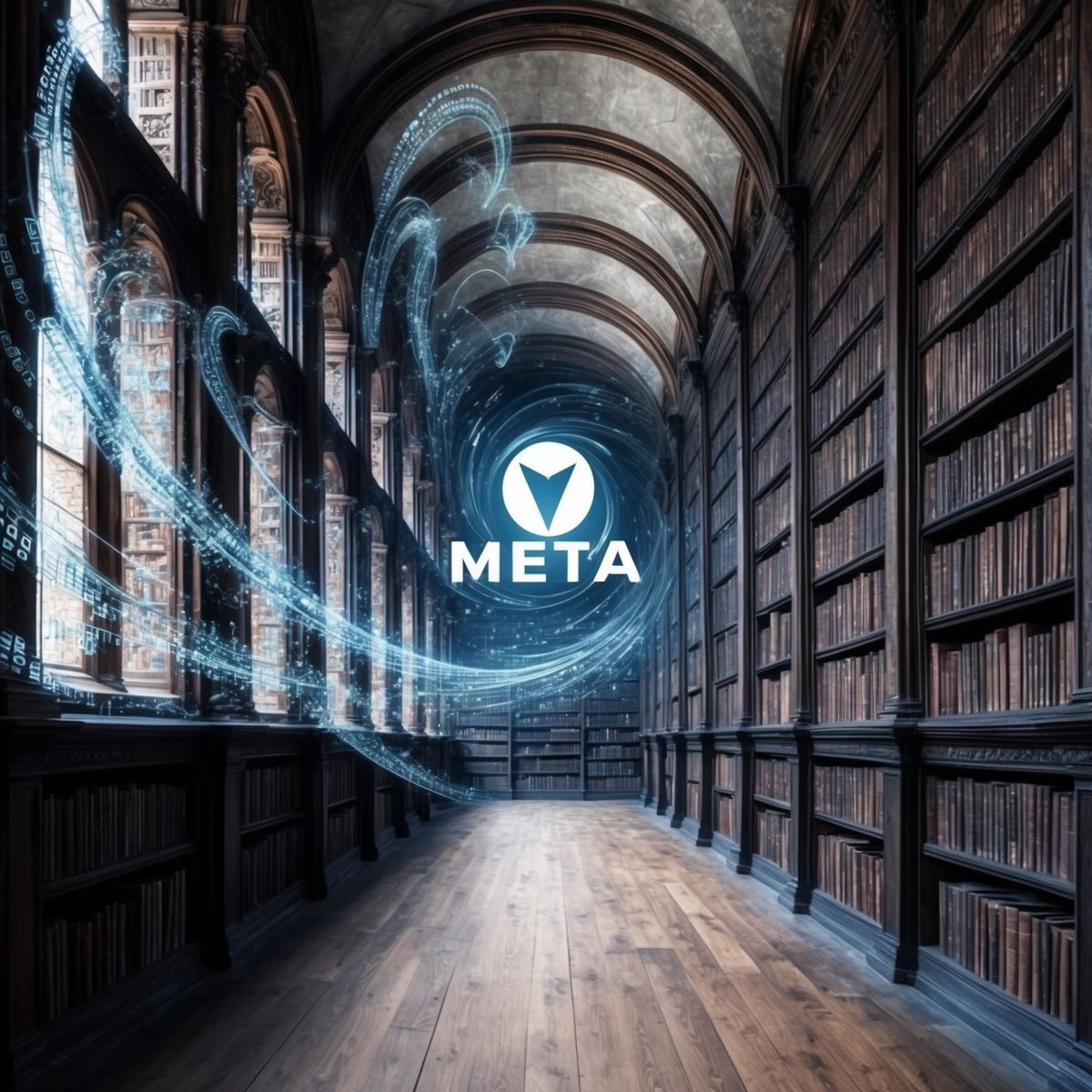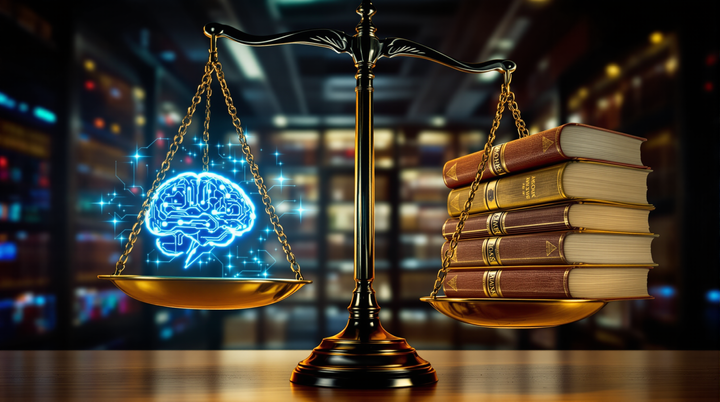Meta’s Risky Business: Did AI Training Go Too Far?

Some days, I imagine that if Shakespeare were alive, he'd spend his evenings scrolling through eBooks on LibGen, sipping an ethically sourced latte, and muttering, "To pirate or not to pirate, that is the question." Then again, if you ask the folks at Meta, they'd prefer not to star in a Shakespearean tragedy involving allegations of data piracy. Yet here we are, witnessing a real-life drama with Mark Zuckerberg in the spotlight, accused of greenlighting a massive library of—shall we say—"borrowed" books to train their AI models.
The plot is thick enough for a vintage law school case study, complete with copyright infringement claims, authors who are outraged (and rightfully so), and a cameo by The Big Z himself. The dustup centers on Kadrey et al v. Meta Platforms, Inc. (Case No. 3:23-cv-03417-VC) in the U.S. District Court for the Northern District of California, filed back in 2023 by Richard Kadrey, Sarah Silverman, Ta-Nehisi Coates, and others. They allege that Meta used pirated works to train its AI—specifically, a “shadow library” called LibGen. According to court documents, Meta’s engineers were initially wary of torrenting the LibGen stash, likely because it doubles as both download and upload, but one can almost picture the team meeting: “Boss, do we grab the whole Library of Alexandria?” “Sure, just scrub the copyright lines, we’ll be fine,” might have been the (alleged) reply. Add in claims that Mark Zuckerberg himself signed off on this plan, along with fresh revelations in late 2024 and early 2025 about the removal of copyright notices, and it’s clear that “allegedly” is the magic word fueling the legal drama. In January 2025, Judge Vince Chhabria rejected Meta’s bid to keep big chunks of these filings under wraps and gave the authors the green light to bolster their complaint. Meta denies any wrongdoing, but the case is ongoing and could reshape how AI developers gather massive datasets—particularly when those datasets might be full of someone else’s copyrighted material.
Still, the comedic element here is overshadowed by some very real legal issues. Copyright law isn't the type of class you skip in law school if you plan to dabble in AI. It's serious business, especially when the dataset you're using is basically the digital version of rummaging through your neighbor's garage and then proclaiming, "It's okay because it was already unlocked." The plaintiffs (including well-known authors like Ta-Nehisi Coates and Sarah Silverman) aren't amused. They argue that Meta's alleged sabotage of copyright management information—i.e., scrubbing off those pesky lines that say "Copyright © 20XX So-and-So"—is a significant violation. This highlights the difference between "fair use" and "fair… you tried, but nope." When you remove copyright notices, you weaken any fair use defense. That's about as subtle as arriving at a fancy gala in your pajamas—memorable but not usually a hit.
Meanwhile, Zuck himself has testified that any mention of using blatantly pirated material would throw up "lots of red flags" at Meta. Evidently, either the flags were not all that red—or someone in the AI lab was colorblind. The lawsuit raises the question: how far can companies go in scouring the web for training data? Fair use can be a robust (and sometimes ambiguous) doctrine in the United States. Yet the moment you actively disguise your source, you've drifted from "adventurous scholar" to "uninvited guest who's now rearranging the furniture." Courts don't typically reward that behavior.
Of course, none of this happens in a bubble. Across the Atlantic, the EU is shaping its own AI regulations, mindful of worst-case scenarios. Their AI Act isn't heavy on copyright detail, but it sets an essential ethical foundation for how AI ought to be created and deployed. If Meta's saga unravels into a high-stakes meltdown, companies worldwide might find themselves adopting "excruciatingly thorough compliance" as their new motto—if they haven't already. It's like being at a dinner party where one guest breaks out the contraband cheese; suddenly, everyone else double-checks whether their cheese is legally imported.
This fiasco also highlights that publicly available material isn't always free to use. "Publicly available" just means it's out there on the internet, not that you're free to use it however you like. The internet is full of gray areas and questionable downloads, but if AI companies rummage around those corners, they'd better be prepared for the legal ramifications. Pretending that something's kosher just because it sits on a public-facing server is akin to proclaiming ownership of every shell on the beach simply because you found it washed ashore.
At its heart, though, the LibGen controversy is a cautionary tale. It reminds us that in the rush to develop cutting-edge AI, a corporation can't just wave a magic wand over its data pipeline and declare everything legally pristine. The vibe of "move fast and break things" might have been daringly cool in 2004, but 2025 law and regulation aren't quite as chill when it comes to copyright. Scrub away those disclaimers, and you might find yourself scrubbing floors in a courtroom instead.
As a legal academic who tries to keep up with evolving IT laws (and occasionally cracks jokes about them), I see a real challenge for tech giants in maintaining ethical and legal AI training practices. If you're building a model meant to read the entirety of the internet, you'd better do your homework on every text snippet it ingests. Picture it like constructing the world's largest sandwich: you need to double-check the freshness of each ingredient, or the entire thing might make someone sick—and land you in a lawsuit about food poisoning.
By the time the dust settles, we'll likely have new precedents informing how future AI models can source their data. Until then, if you're an AI startup, maybe keep your data-scrubbing operations a little more transparent and a little less "shhh, no one will notice." If you're an author, keep an eye on your publisher's royalty statements because you never know if your next biggest fan could be a neural network with questionable reading habits. And for the rest of us, if you ever find yourself wanting to rummage through LibGen for research, at least remember to consult a lawyer—or maybe just a good librarian.
This entire story ends where it begins: with the simple principle that taking stuff without permission (especially stuff marked "copyright") is frowned upon by law, reason, and common decency. No number of exclamation points or disclaimers can fix that, so let's put the emphatic word at the end of this piece: proceed with caution. Then, of course, stop writing when we've reached the end.



